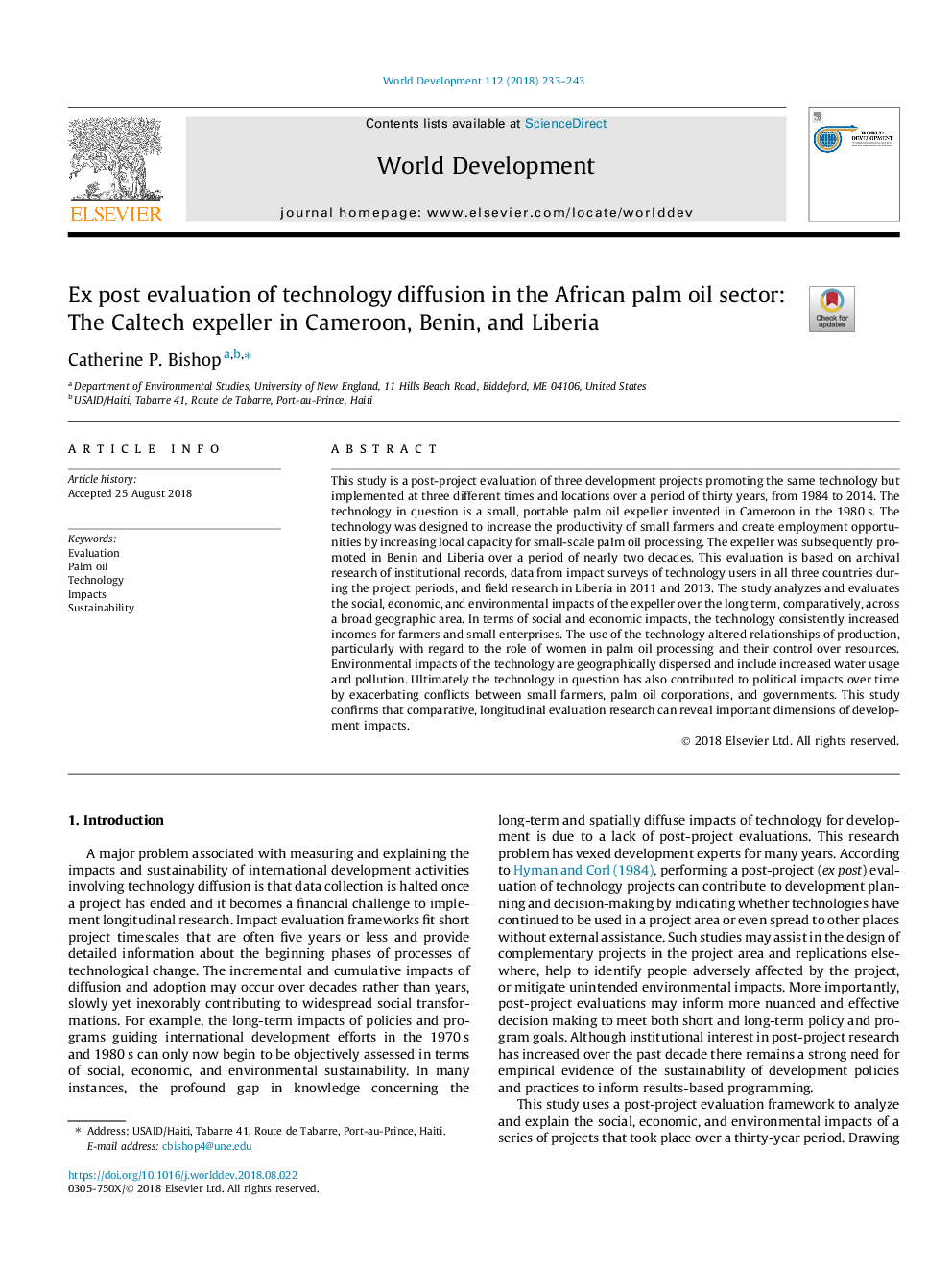| Article ID | Journal | Published Year | Pages | File Type |
|---|---|---|---|---|
| 9953089 | World Development | 2018 | 11 Pages |
Abstract
This study is a post-project evaluation of three development projects promoting the same technology but implemented at three different times and locations over a period of thirty years, from 1984 to 2014. The technology in question is a small, portable palm oil expeller invented in Cameroon in the 1980â¯s. The technology was designed to increase the productivity of small farmers and create employment opportunities by increasing local capacity for small-scale palm oil processing. The expeller was subsequently promoted in Benin and Liberia over a period of nearly two decades. This evaluation is based on archival research of institutional records, data from impact surveys of technology users in all three countries during the project periods, and field research in Liberia in 2011 and 2013. The study analyzes and evaluates the social, economic, and environmental impacts of the expeller over the long term, comparatively, across a broad geographic area. In terms of social and economic impacts, the technology consistently increased incomes for farmers and small enterprises. The use of the technology altered relationships of production, particularly with regard to the role of women in palm oil processing and their control over resources. Environmental impacts of the technology are geographically dispersed and include increased water usage and pollution. Ultimately the technology in question has also contributed to political impacts over time by exacerbating conflicts between small farmers, palm oil corporations, and governments. This study confirms that comparative, longitudinal evaluation research can reveal important dimensions of development impacts.
Related Topics
Social Sciences and Humanities
Economics, Econometrics and Finance
Economics and Econometrics
Authors
Catherine P. Bishop,
